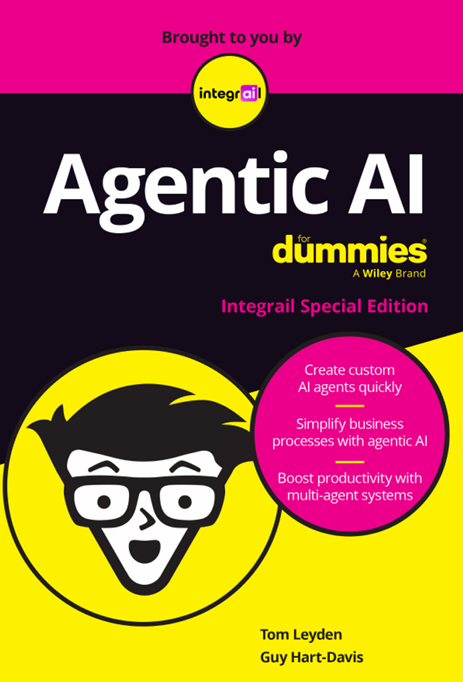AI Benchmark Tool: Elevate AI Performance with Integrail
Artificial Intelligence (AI) has transformed various industries by automating complex tasks and providing data-driven insights. However, to maximize...
Optimize your project by choosing the right LLM. Learn model comparisons, evaluation tips, and use Integrail’s Benchmark Tool.
Selecting the right large language model (LLM) can significantly impact the success of AI projects. With numerous LLMs available—each bringing unique strengths and costs—choosing the best option for your goals isn’t straightforward. Using a one-size-fits-all model like ChatGPT might work for basic needs, but it may not optimize efficiency, accuracy, or costs for complex tasks. In this guide, we’ll break down essential factors to consider when selecting an LLM and explore how Integrail’s Benchmark Tool can simplify the process, especially for those running multi-agent systems.
LLMs vary widely in capabilities. While some excel at complex problem-solving, others prioritize efficiency or speed, which is crucial for tasks that require fast turnaround times. Relying on a single model, like GPT-4, can limit flexibility and increase costs unnecessarily. Think of selecting an LLM as choosing the right tool from a toolbox: you wouldn’t use a single tool for every fix, and in the same way, you shouldn’t depend on one model for every task. Understanding these differences helps ensure you’re making the most of your AI applications.
When evaluating LLMs, consider the following aspects to align your choice with your project's goals.
Accuracy and Quality of Outputs
Accuracy is often the most critical factor for tasks that demand high precision, like content creation or technical answers. For example, models like GPT-4 are renowned for producing coherent, human-like text, making them ideal for intricate tasks like customer support chatbots or detailed reports.
Cost-Effectiveness
Some LLMs, while highly accurate, can be costly to run. Lightweight models like LLaMA are designed for simpler tasks and can perform well at a fraction of the cost. When the task doesn’t demand highly sophisticated responses, opting for an efficient model helps balance quality and budget.
Processing Speed
Speed is crucial for real-time applications. Models such as Cloud by Anthropic are tuned for faster responses, making them suitable for conversational interfaces where quick replies are necessary.
Contextual Understanding
For projects involving extensive inputs or long-form data, models like Gemini are tailored to manage lengthy context efficiently. Gemini’s expanded token limit makes it effective in maintaining context over extensive text, which is invaluable for projects requiring sustained contextual awareness.
Task-Specific Models
Specialized models, such as Codex for code generation, offer targeted strengths that can streamline specific tasks. When you need high accuracy in coding tasks, these models are preferable as they’ve been fine-tuned for certain types of responses.
To better illustrate, let’s look at some popular LLMs and where they fit best:
GPT-4 (OpenAI)
Known for producing human-like text and complex reasoning, GPT-4 shines in creative writing and in-depth problem-solving but comes with higher latency and cost.
LLaMA (Meta)
A lighter, more affordable model, LLaMA is suitable for simpler tasks where cost savings are essential, offering solid performance for straightforward content generation without the overhead of more complex models.
Claude (Anthropic)
Best for conversational tasks and structured reasoning, Claude is a reliable choice for use cases in customer service automation or Q&A systems, offering a good mix of speed and accuracy.
Gemini
With an extended token length, Gemini maintains context over large documents, making it ideal for legal or academic settings where prolonged reasoning is required.
Codex (OpenAI)
Specifically optimized for coding, Codex provides code suggestions and generates scripts, making it perfect for developers aiming to streamline coding workflows.
Integrail’s Benchmark Tool simplifies the complex task of evaluating LLMs by allowing users to compare models directly, even within multi-agent workflows. Designed with a user-friendly interface, the tool enables you to upload models, choose evaluation metrics, and view detailed performance reports.
Features of the Benchmark Tool:
Customizable Metrics
Users can set benchmarks tailored to specific needs—accuracy, cost, speed, etc.—to ensure a comprehensive evaluation based on their goals.
Real-Time Insights
Get immediate feedback on each model's performance, allowing for fast adjustments. For example, if a model's latency is too high for a real-time application, you can identify and replace it promptly.
Multi-Agent Integration
The Benchmark Tool is designed to fit seamlessly into multi-agent workflows, enabling you to evaluate individual agents’ performance. This integration is particularly useful for complex tasks that benefit from diverse model strengths.
Let’s explore how to conduct a benchmark using the tool:
Define Your Task
Outline the task’s requirements. Are you optimizing for speed, cost, or accuracy? For instance, a task involving social media management may prioritize speed over cost.
Select Models for Testing
Choose multiple LLMs to evaluate, such as GPT-4, LLaMA, and Codex, based on their suitability for your requirements.
Customize Evaluation Metrics
Specify criteria such as accuracy, speed, and output length. If brevity is essential, add this to the criteria to avoid overly verbose responses.
Run the Benchmark
Initiate the test, and the tool will provide a side-by-side comparison of model performance, highlighting strengths and weaknesses based on your criteria.
Analyze Results
Integrail’s Benchmark Tool not only provides grades for each response but also explains the grading, making it easier to understand why one model outperforms another.
Refine Your Selection
Based on the results, you can adjust your workflow, perhaps choosing a combination of models for different parts of a project.
Single models may work well for straightforward tasks, but complex projects benefit from multi-agent systems, where different models contribute based on their strengths. For instance, a system that posts research summaries to social media could involve:
Using a multi-agent workflow can improve efficiency and cost-effectiveness, as each LLM is tasked according to its strengths. Integrail’s platform allows for seamless integration of multi-agent systems, making it easier to combine models without extensive back-and-forth.
Suppose you’re running a social media account for a business and need to generate multiple posts daily. By using Integrail’s Benchmark Tool, you can evaluate models like GPT-4 and LLaMA to determine which offers the best balance of brevity, clarity, and tone for social media content. You could set up a benchmark that tests responses to various prompts and see which model consistently meets your standards.
After running the benchmark, you may find that GPT-4 excels at generating insightful responses but tends to be verbose, while LLaMA offers more concise replies that fit social media needs better. With these insights, you could set up a system where LLaMA handles quick replies, while GPT-4 is reserved for detailed responses.
Effective LLM evaluation isn’t just about a single benchmark. Relying on multiple evaluations (like BigBench, TruthfulQA, MMLU) offers a broader view of each model's strengths and weaknesses. This multi-faceted approach ensures a well-rounded assessment, helping you pinpoint the most suitable model for complex tasks.
Selecting the right LLM is essential for building efficient and cost-effective AI solutions. With Integrail’s Benchmark Tool, choosing the best model for your project becomes easier, allowing for direct comparisons and tailored evaluations. By leveraging multi-agent workflows, you can maximize each model’s strengths, ensuring a well-rounded approach to tasks.
Consider trying Integrail’s Benchmark Tool to evaluate your LLM options today. With the right selection, you can optimize both performance and cost, keeping your AI solutions adaptable and effective as the landscape of LLMs evolves.

Artificial Intelligence (AI) has transformed various industries by automating complex tasks and providing data-driven insights. However, to maximize...

If you’re hearing about Agentic AI and wondering what all the fuss is about, you’re not alone. It sounds complex, but here’s the good news: it’s...

Artificial Intelligence (AI) agents are no longer just tools for complex systems—they are becoming interactive, creative, and easy to build, thanks...
Start your journey with Integrail

Try AI Studio by Integrail FREE and start building AI applications without coding.

NEW White Paper: Discover how AI Studio accelerates your workflows